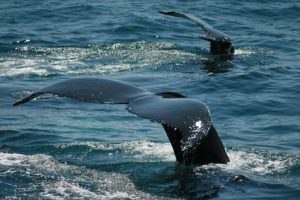Marine Conservation Course
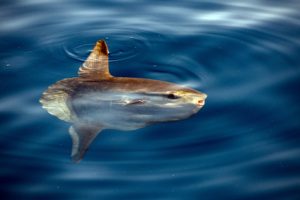
The oceans are under a tremendous amount of pressure. Only 20% of the fish stocks in the world are not being exploited to some level. While intensive fishing methods are endangering the lives and habitats of other animals that live in the ocean, massive levels of rubbish are being dumped into the ocean. There are 5.25 trillion pieces of plastic debris in the world today, the size of a floating plastic island three times the size of France. Populations of many marine mammals, fish and turtle have already depleted.
*You will have access to the course for 12 months only. You can purchase course extensions.
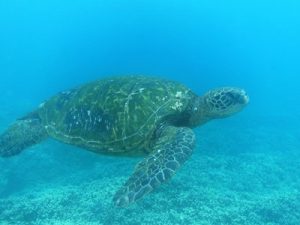
For instance, on the course, you will learn about the sustainable fishing techniques and how they can be incorporated to save fish populations from dying out. You will discover the paths that organisations are taking such as campaigning for new laws and treaties, introducing fishing quotas and establishing new protected areas. On this course, you will learn about the different parties involved in the effort to conserve marine life and the powers they have to bring change.
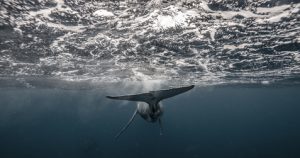
What is the main aim of marine conservation? While natural elements can endanger habitats and ecosystems, marine conservation is focused on limiting the damage caused by human behaviour and restoring entire marine ecosystems. Habitat degradation, species loss, changes in ecosystem function and overabundance are all modern issues marine conservationists work to correct.
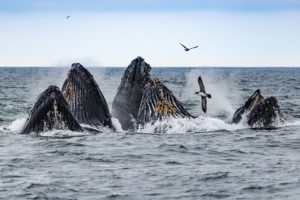
Our Marine Conservation Diploma Course consists of 6 theory units and covers the ocean as a habitat, the evolution and marine life adaptation, fisheries and sustainable fishing, ocean pollution and the impact of global climate change, the impact of non-native species and government policy and legislation.
- This Marine Conservation course has been designed for those interested in marine conservation and for those wanting to volunteer or follow a career in this field.
- Marine Conservation is the study of conserving physical and biological marine resources and ecosystem functions.
- Marine conservationists rely on a combination of scientific principles derived from marine biology, oceanography and fisheries science, as well as on human factors such as demand for marine resources and marine law, economics and policy in order to determine how to best protect and conserve marine species and ecosystems.
- Anyone 18 or over and studying our Marine Conservation Diploma Course is eligible for ZSL (Zoological Society of London) Fellowship.
- Continued Professional Development: The theory aspect of this course counts for 72 hours CPD.
- This Marine Conservation course consists of 6 theory units studied online from home with full tutor support.

Theory aspect of the Marine Conservation Course
Unit 1
The ocean as a habitat
Unit 1 explores basic oceanography and the marine environment. Learn about the formation of the earth’s oceans, zonal classification of the marine environment. Learn about the physical and chemical properties of seawater and how these properties make the ocean a suitable habitat.
Unit 2
Evolution and marine life adaptation
Learn about common theories of evolution and the history of our understanding of evolutionary biology and the natural mechanisms of self-replication. Learn about the classification of marine organisms and species adaptations in the context of the marine environment.
Unit 3
Fisheries and sustainable fishing
Learn about the flow of energy within a marine food chain. Explore the different fishing techniques and the environmental impact of fisheries and fishing. Learn about sustainable fishing.
Unit 4
Ocean pollution and the impact of global climate change
Learn about various types of pollution and explore the different properties of pollutants & their effects on marine life, wildlife and ecosystems and the different clean up methods. Understand the impact of climate change on the marine environment.
Unit 5
Impact of non-native species
Learn about utilisation, degradation and loss of coastal & marine habitats.
Unit 6
Government policy and legislation
This unit explores the need for marine wildlife protection, sustainable fisheries and clean seas and beaches.
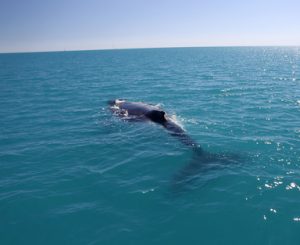
Covering over 70% of our planet’s total surface, the seas are somewhat of an enigma. As little as 5% of the world’s oceans have actually been explored by man and new species are discovered everyday with an estimated 75% of species yet to be discovered. Irrespective of the fact we know very little about our oceans they are incredibly important to life on earth in a number of aspects; they drive weather systems, control global temperatures based on oceanic currents and provide transport, food and habitats for its extremely diverse inhabitants.
However, where did the oceans come from? How did they develop and come to be configured around the continents as they are today? This marine conservation course explores all this and more.
We offer a selection of accredited and employer recognised courses specifically designed for careers working with animals.
If you have any questions about our courses, please contact us.
We’ve assisted many people to achieve their goal to work with animals. Read more about our 5-star reviews and student success stories.
Gain relevant training to achieve your goal to work with animals.


